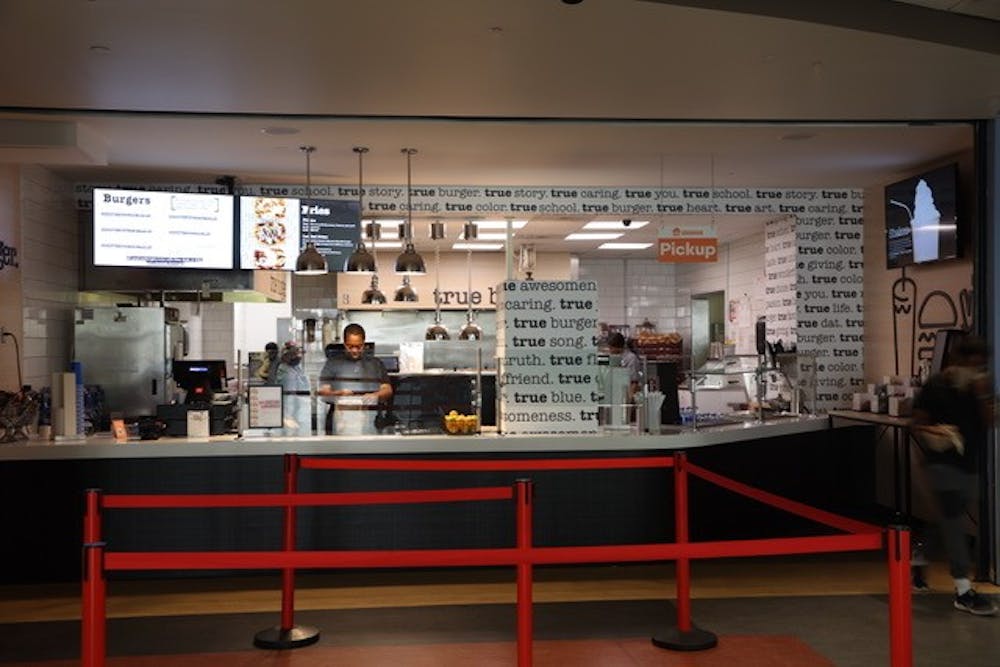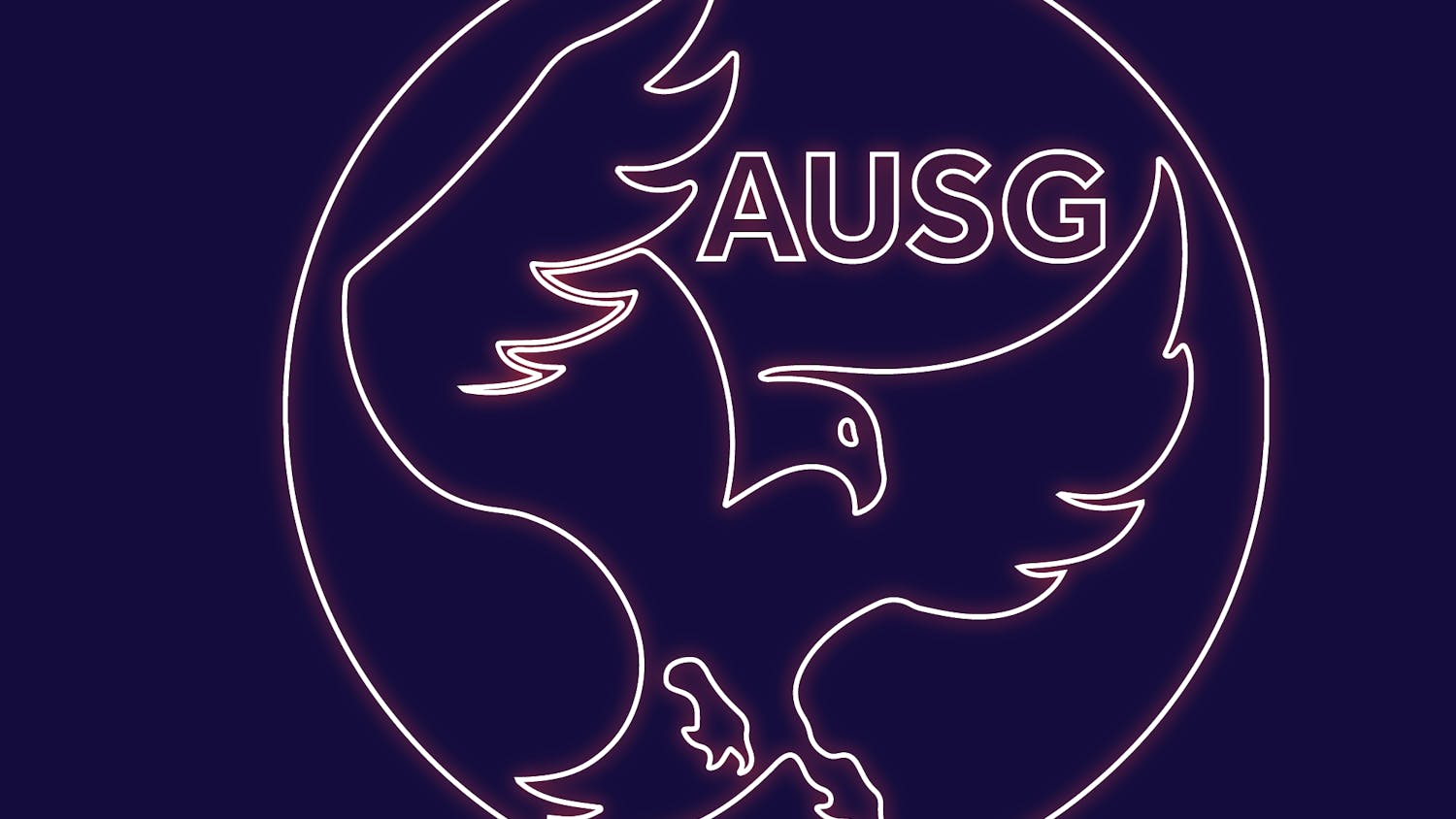From the Newsstands: This story appeared in The Eagle's November 2022 print edition. You can find the digital version here.
As American University has made multiple changes to the school’s dining options, students are frustrated with a lack of food options for students with dietary restrictions.
In the past year, AU Dining has replaced Wonk Burger and Absurd Bird with True Burger, Pom & Honey with Paper Lantern and moved Hissho Sushi to Kerwin Hall, putting Baba’s Pizza and Halal Shack in its old location. These changes, combined with TDR’s recent health code violations, have left some members of the AU community feeling underwhelmed with their eating options.
Limited campus dining has forced students with food restrictions and insecurities to rely elsewhere for their meal options. For some, this has led to increased expenses on top of the 100-block meal plan required for students that live on campus.
Issues such as Create closing and District Pickle only being open for a few hours five days a week limit students' friendly dining options, and others feel confined to TDR, an environment that has made some students feel unsafe.
“[Students] don’t have enough variety. They eat the same thing, they feel really torn and stuck in their options,” said School of Public Affairs sophomore Elise Buellesbach.
Vegan and vegetarian students, such as Mina Dunn, a freshman in the College of Arts and Sciences, have had a hard time finding on-campus options that meet their dietary needs. Dunn said that often, due to restrictive dining hours and few options at those stations, she can only find two or three places to eat on campus — and those options don’t always have what she’s looking for.
“I can’t imagine being gluten free or vegan here because everything I do eat as a vegetarian has dairy or bread in it so I don’t really know how they’re balancing that,” Dunn said.
Students like Buellesbach have expressed concerns about campus dining options via social media and dining advisory meetings, but have often been met with silence and stagnance. At an AU Dining Advisory Council meeting on Oct. 19, several members of the Disabled Student Union voiced their concerns regarding food options on the meal plan and a lack of flexibility in accommodations.
“The reality is that the meal plan can’t accommodate us, and that TDR doesn’t do a good job of accommodating those of us with dietary restrictions,” Buellesbach said.
Many students with allergies find it difficult to eat at TDR’s “allergy friendly” section, G8, as well. According to TDR, this section caters to the eight most common allergens: milk, eggs, fish, shellfish, tree nuts, peanuts, wheat and soybeans.
“It seems like they kind of forget that students have allergies that are not G8,” said Gabrielle Bertrand, a junior in SPA.
Students whose allergies are not catered to within this section have found themselves stuck between risking cross contamination and eating the same meals every day to get enough food. The Eagle emailed AU Dining for a comment on the students' concerns but did not receive a response.
At the Dining Advisory Meeting, Bertrand pointed out that ingredient changes and other allergens are not always updated on the dining app or ingredient cards.
“They say they have paper recipes that we can ask for, but how were students supposed to know they didn’t update the app?” Bertrand said.
Students across campus have found a lack of variety and consistency with meal options this semester, and many don’t feel heard when it comes to making necessary dining changes at on-campus locations.
“The problems that the students with dietary restriction have are not singular to our group, but it's a universal trend.” Buellesbach said. “How do we make food more exciting and more interesting? How do we make this a more accessible and more equitable experience?”





